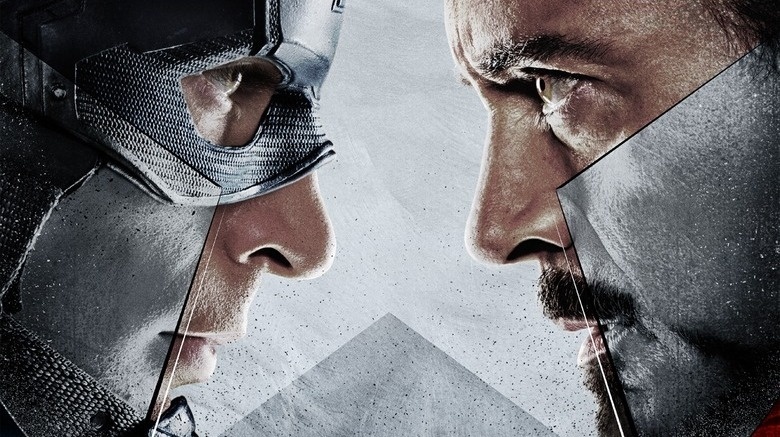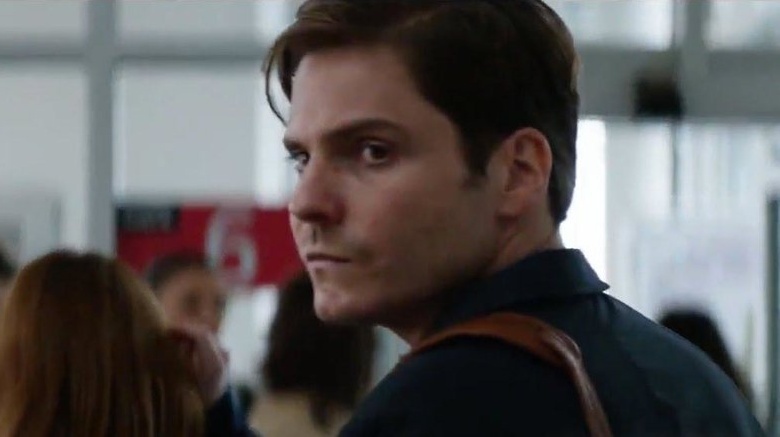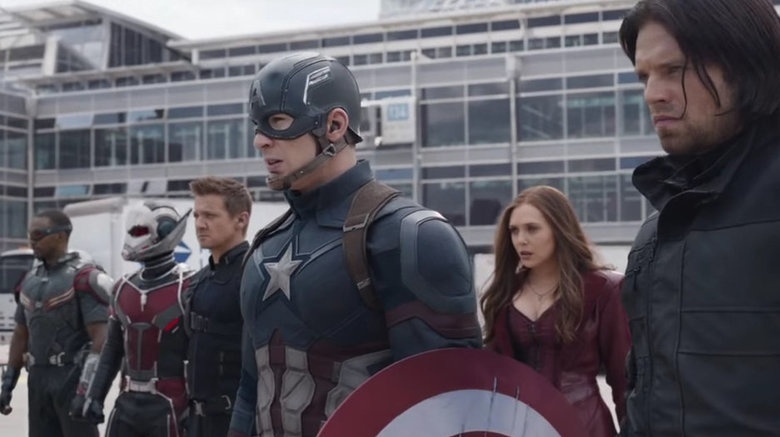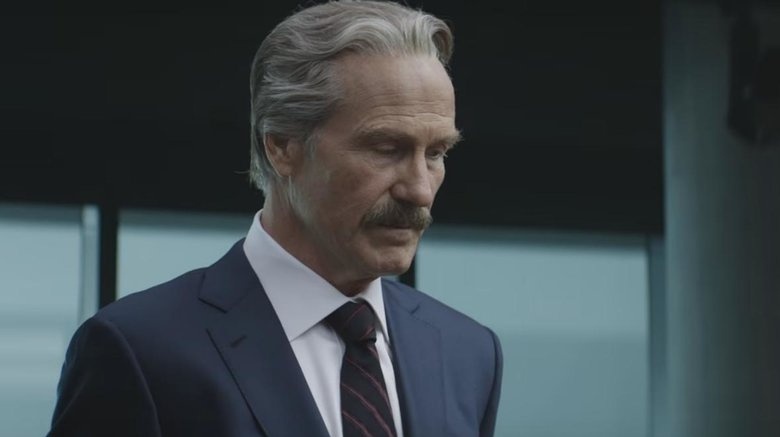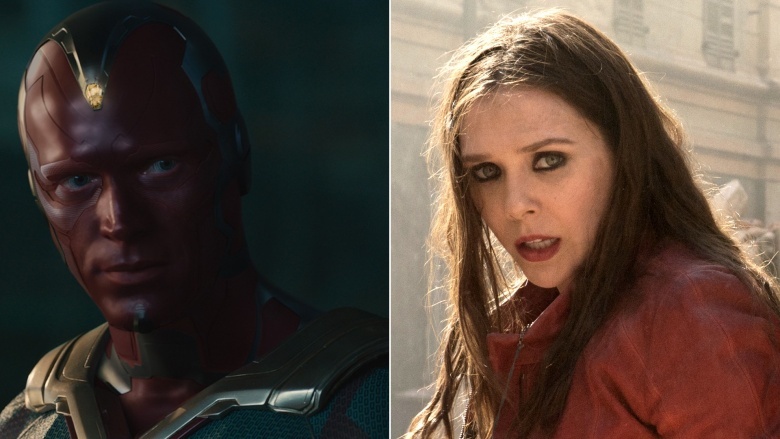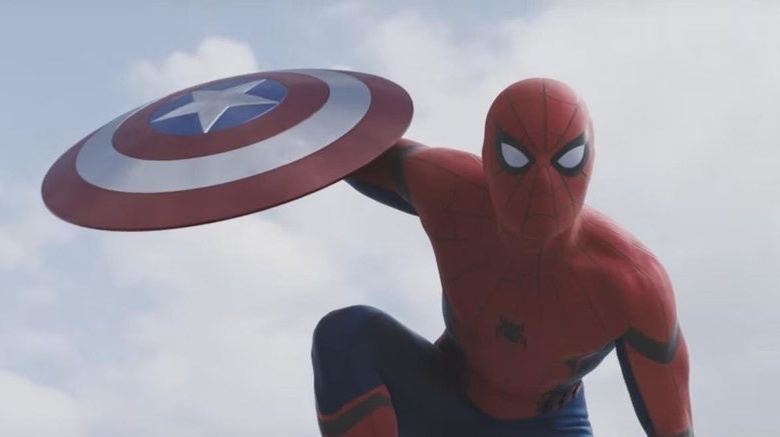The Ending Of Captain America: Civil War Explained
Given the sheer volume of positive reviews, it's time to concede that Captain America: Civil War might just be the best Marvel Cinematic Universe motion picture yet. Avengers: Age of Ultron may have been somewhat disappointing, but even though this is technically a Captain America solo joint, when you've got Cap, Iron Man, Falcon, Black Widow, Hawkeye, War Machine, the Vision, the Scarlet Witch, Ant-Man, Black Panther, and Spider-Man, it's time to face facts, true believers: this effectively is an Avengers movie...and a damn good one, too. But after all the smoke clears, what conclusions can we take from the film's final moments? And if the title of this article weren't hint enough, massive spoilers ahead!
For once, the bad guy won.
Sure, you can argue that there were some winners within the heroes' ranks. Most notably, Captain America stood by Bucky 'til the bitter end, defending his onetime partner's actions as the Winter Soldier on the grounds he'd been brainwashed—and proving his innocence in the death of the Black Panther's father, King T'Chaka of Wakanda. In the grand scheme of things, that's a win, especially since the end result was that T'Challa—at last aware of how Zemo had played everyone and, indeed, had been the one truly responsible for killing his father—made the decision to allow Bucky to remain in cold storage, as it were, in Wakanda. Swell guy, that T'Challa.
But we can't ignore the bigger picture: Zemo's goal was to destroy the Avengers by creating a schism within the team. Although he may now be sitting in a cell that's ostensibly destined to be his home for the remainder of his life—because everyone knows the bad guys in comic book movies always stay locked up for the long haul, right?—no matter what Zemo's current fate might be, the fact of the matter is that the Avengers were destroyed. Not that anyone thinks Captain America and Iron Man won't eventually heal the rift that currently exists between them, but Zemo had a plan, and he successfully brought it to fruition. You can boo and hiss, but you have to admit: he did what he set out to do.
Captain America's team may no longer be behind bars, but they're all fugitives now.
Although we don't actually see the big breakout onscreen, it's clear that Captain America is a major believer in the "No Man Left Behind" mindset (big surprise) and that the Avengers who were in custody aren't anymore. As such, that means that everyone who was on Cap's side of the big battle is now considered to be a criminal, and they're on the run from the law. We've got plenty of time to sit on our hands and wait for the next chapter in this saga, which means that we've also got plenty of time to contemplate how things will play out—will this be a Mighty Avengers/New Avengers situation?—but one thing's for sure: we're unlikely to get any real resolution to the present situation until at least next summer.
General Ross is destined to be a major player for the foreseeable future.
It's been so long since the last time we saw Thaddeus "Thunderbolt" Ross in the Marvel Cinematic Universe that you'd be forgiven if it took you a moment to remember he's the man who devoted his life to hunting down the Hulk. Since we last saw him in 2008's The Incredible Hulk, Ross has gotten a promotion to Secretary of State, and he's also expanded his annoyance with Bruce Banner to the point that he's pretty pissed off at superheroes in general, which is why he's so devoted to getting them all behind the new Sokovia Accords—and why he's angered further when Captain America and his team refuse to sign, thereby setting into motion the so-called "Civil War" of the film. With Cap's team now on the loose, you can bet that Ross only has one thing on his mind: to capture the fugitive heroes and see that they stand trial for their crimes. You can bet that even if Ross doesn't actually appear in some upcoming MCU films, his name won't be far from any superhero's lips.
The Vision / Scarlet Witch relationship is coming along nicely.
It's well-documented over many decades (and far many more issues of The Avengers) that the Vision and the Scarlet Witch share an unbreakable bond, one that's proven even stronger than death and/or destruction on occasion, and it looks as though that's being echoed onscreen as well. We don't have definitive clarification by the end of the film that they're doing anything other than testing the idea of a relationship, but don't be surprised to see this plot thread turn up in Avengers: Infinity War.
Spider-Man could be the key to bringing the Avengers back together.
First things first: this is arguably the best version of Spider-Man you've ever seen portrayed in a live-action format. Now that that's out of the way, let's talk about what his presence in the mix might mean.
Spidey is clearly on Iron Man's team, and when they're not wearing their respective masks, Peter Parker and Tony Stark have a lot in common, their economic statuses notwithstanding: they're both brilliant inventors, they're both struggling with psychological demons, and they're both combining those aspects of themselves to battle bad guys. But you can see from the interaction between Spider-Man and Captain America, brief though it may be, that Spidey is impressed by Cap—and Cap is clearly intrigued by this young new hero. When Spidey takes the spotlight next summer in Spider-Man: Homecoming, we already know Tony Stark will pop up, but it seems likely that Steve Rogers might show his face as well—and if he does, expect Spidey to be smart enough to listen to whatever Rogers has to say. Peter's destined to be torn between the two sides no matter how things play out, but his wide-eyed view of the world is liable to help mend the fences between Tony and Steve.
